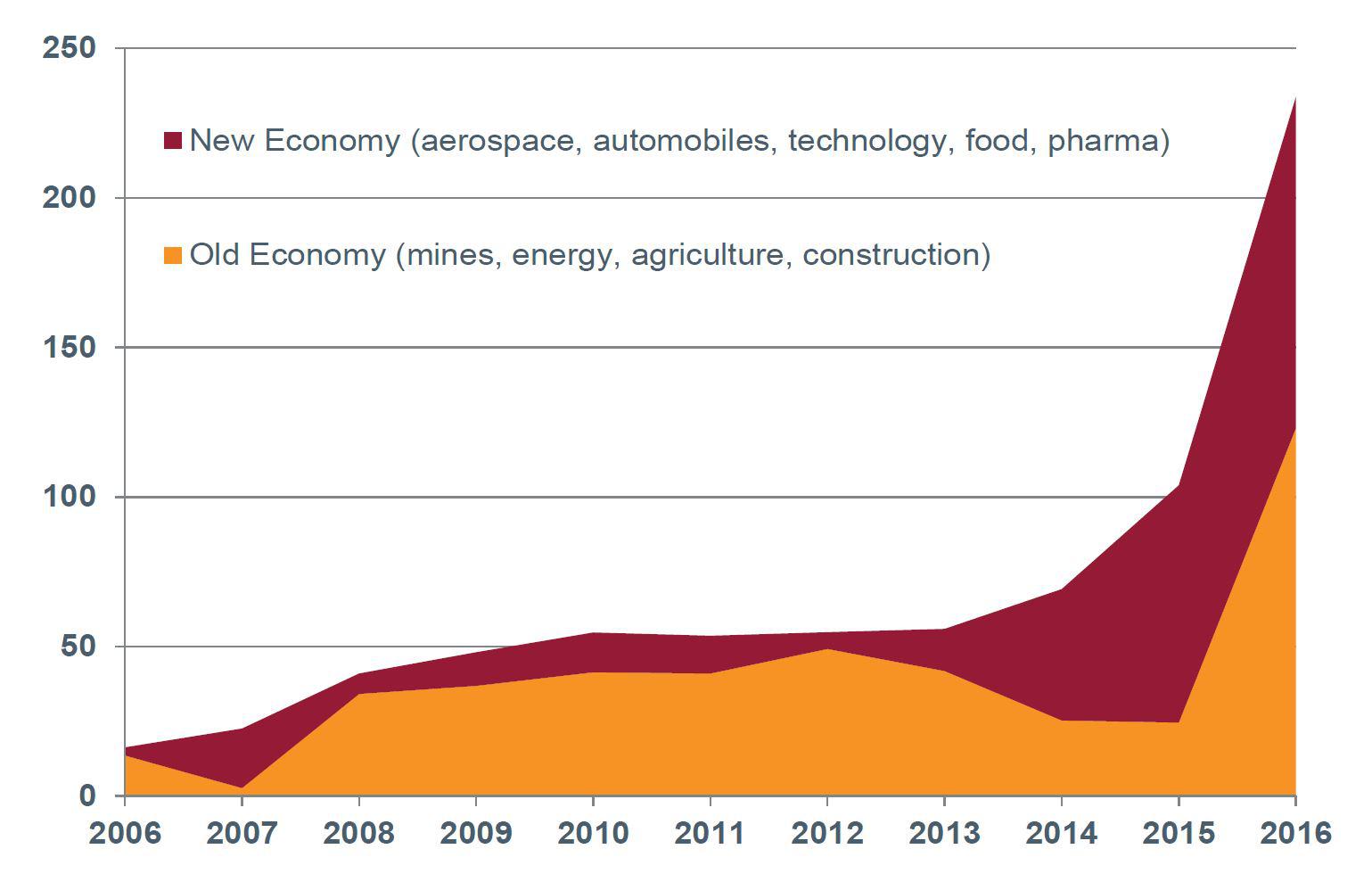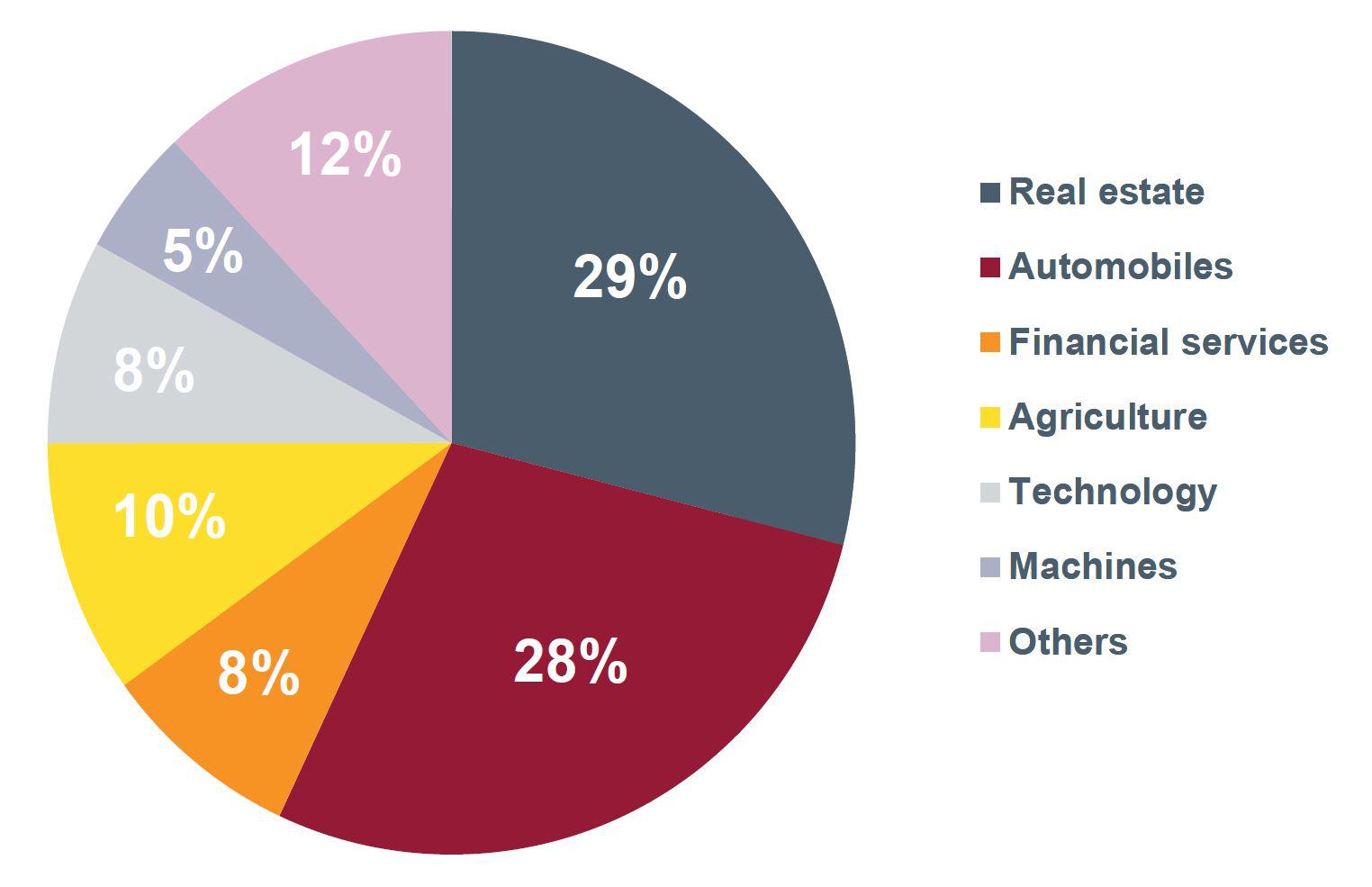Analyse February 2017
China’s economic ambitions go global
With its population of almost one and a half billion, China is relentlessly expanding its economic presence worldwide. It mainly asserts its global ambitions via ever more frequent direct foreign investment. Europe, including Switzerland, is among its favourite targets for its buyouts. Depending on what we read into this international drive, its sheer scale can either worry or reassure us.
By investing abroad massively, China is becoming a net exporter of capital. In 2016 its companies spent a whopping USD 234 billion to acquire full or partial control of businesses in other countries. The total amount they forked out hit a new record ten times higher than the 2007 level (see Figure 1).
A number of reasons underlie this buying spree. China’s public and private corporations face a fall in exports and domestic economic activity. To counter this they are gobbling up companies abroad to procure new production facilities with a view either to evolving or securing a competitive advantage. They are also eager to spread their financial risks in reaction to the yuan’s depreciation.
A global reach
By getting their hands on the expertise behind foreign brands, Chinese companies see their notoriety grow rapidly while avoiding the costly and time-consuming process of building a renowned international label themselves. They can thus also forge positions of strength in sectors with high barriers to entry like Germany’s machine-tools industry, which Chinese firms have bought into repeatedly. The Beijing authorities want their country to secure a global presence. Before 2013 acquisitions were made by semi-public behemoths such as ChemChina, Cnon and CNNC which bought out multinationals in the basic materials, energy and food sectors. But since then they have honed their strategies. With its rising middle class China wants to tilt its economy towards consumption and is therefore investing in high tech, the auto industry, real estate, distribution networks and leisure.
Targeting Europe
Chinese companies have lined up and carried through investments more than once in America. However, in view of protectionist measures taken by the US authorities they are turning elsewhere and Europe has become their preferred focus (see Figure 2). In 2015 they spent USD 20 billion on a slew of acquisitions in areas ranging from real estate (cf. the Louvre Hotels group and office towers) to SNS Reaal Insurance, Espirito Santo and other banks, Club Med and the AC Milan football club. They also targeted financially distressed companies in the auto sector, such as Volvo and Pirelli, and firms brimming with expertise like the German machine-tools specialist KraussMaffei.
Switzerland has not escaped the binge. In February this year the largest chemicals group in the People’s Republic, ChemChina, announced a takeover deal worth USD 43 billion for the Swiss seeds producer Syngenta. Still under way, it is the biggest buyout ever launched by a Chinese company abroad. Acquisitions in the agricultural sector are of strategic importance for Beijing, which wants to ensure a stable food supply for its citizens. But other Swiss companies have been singled out by Chinese investors including the watchmakers Eterna and Corum, the Palace Luzern luxury hotel and the airline caterer Gate Gourmet.
Becoming part of the global economy
The number and magnitude of Chinese investments have aroused concern. Some observers fear that by snapping up key technologies and know-how, China will end up hollowing out the industrial base of competitors. To ward off this danger, a number of governments are blocking acquisitions that could affect their national security. Yet the wave of takeovers can also be regarded from another angle. First of all, unlike the buyouts launched by US investment funds with view to selling their prey at a profit later on, most companies that are swallowed up by Chinese counterparts are not restructured and do not lose jobs. Yet there is an even more positive facet to China’s broad-based offensive: the People’s Republic is set on becoming an integral part of the global economy.
Fig. 1. Chinese M&A activity abroad

Fig. 2. Sector breakdown of acquisitions in Europe (2014-2015)



 Analyse
Analyse